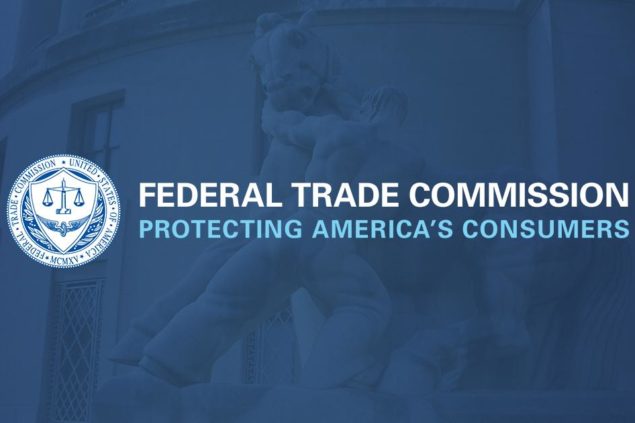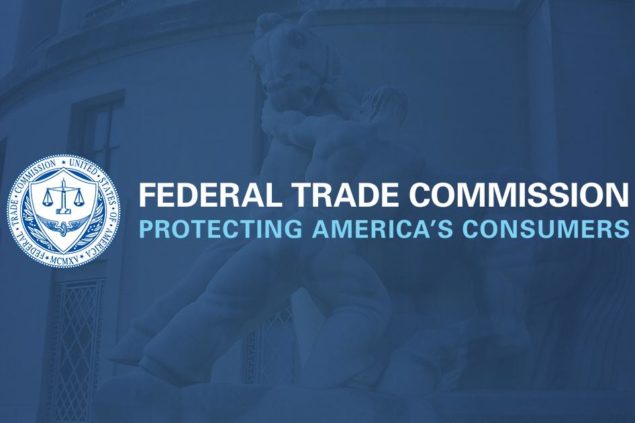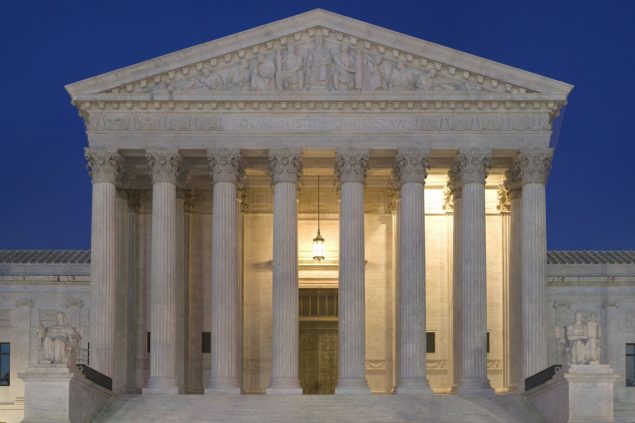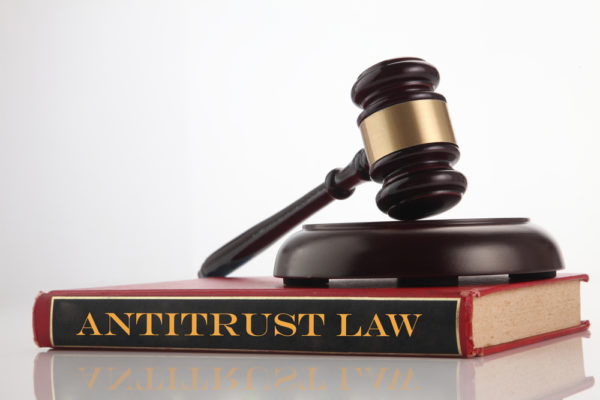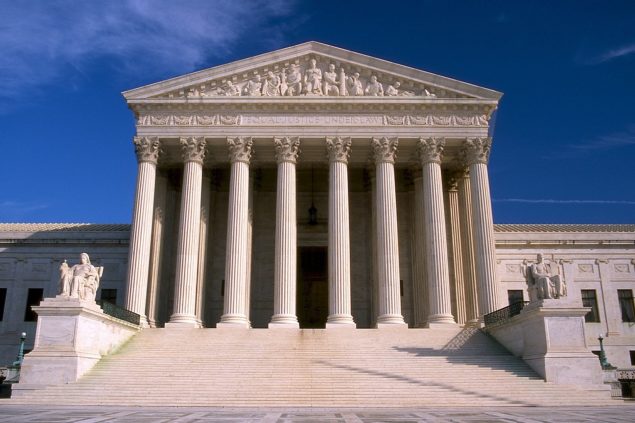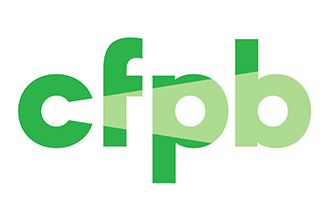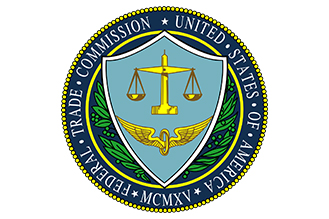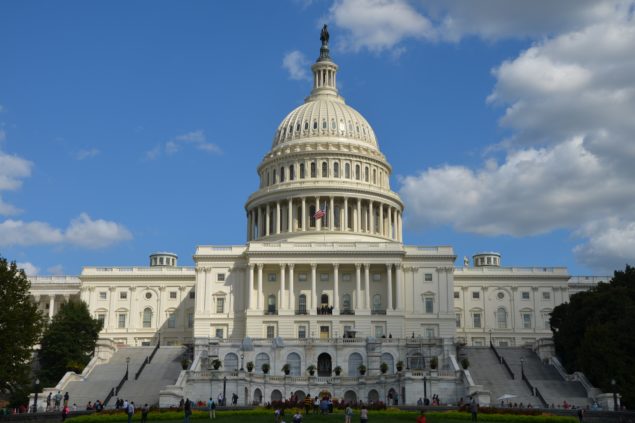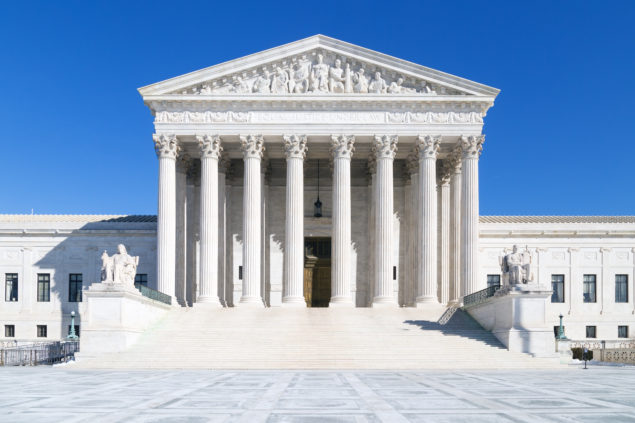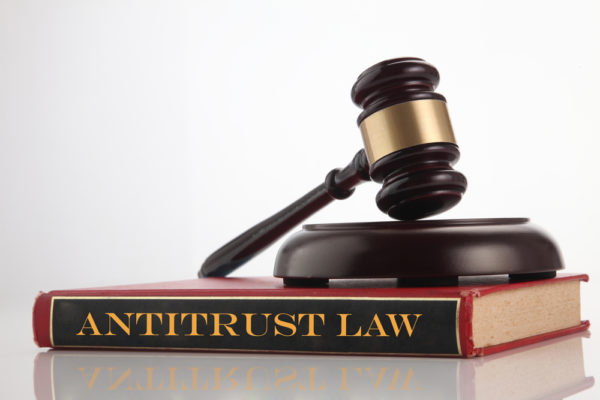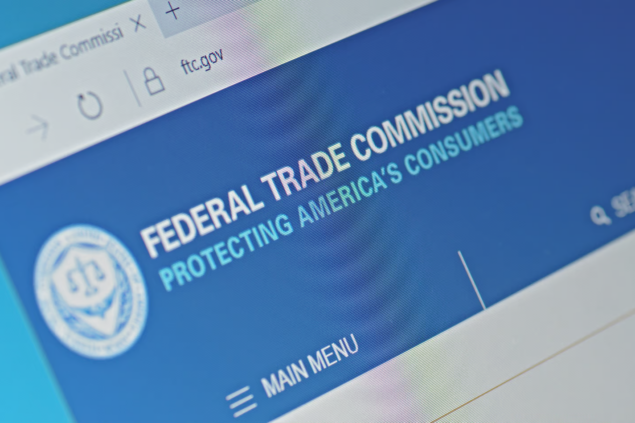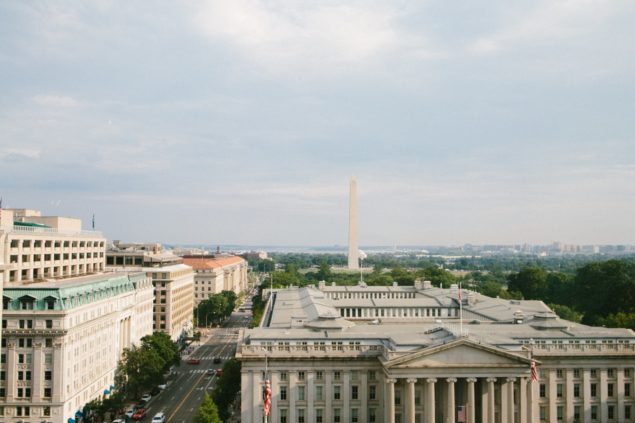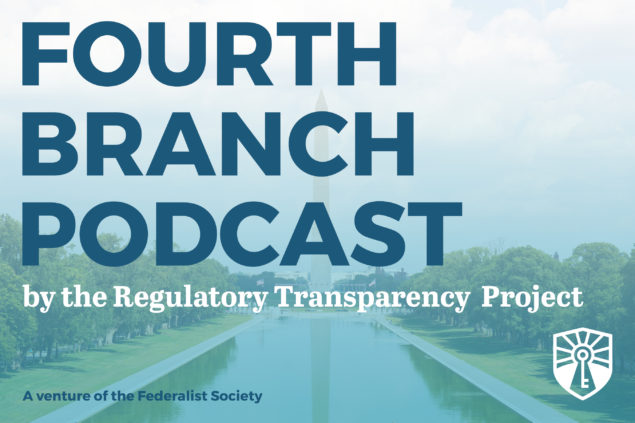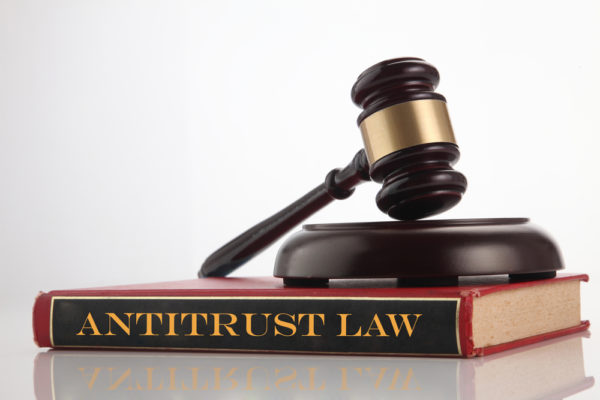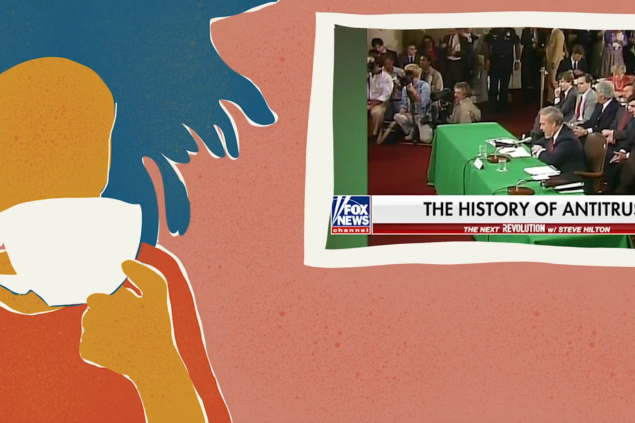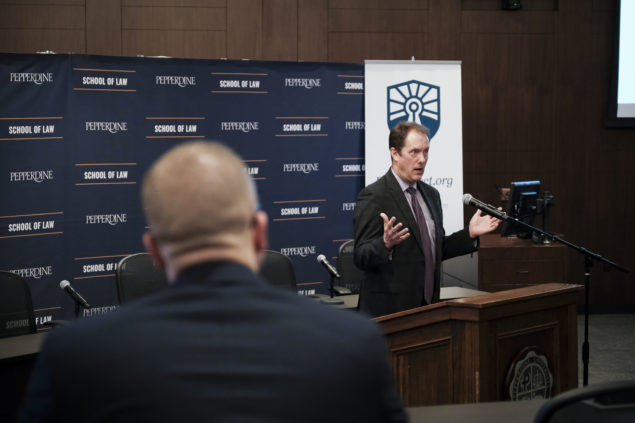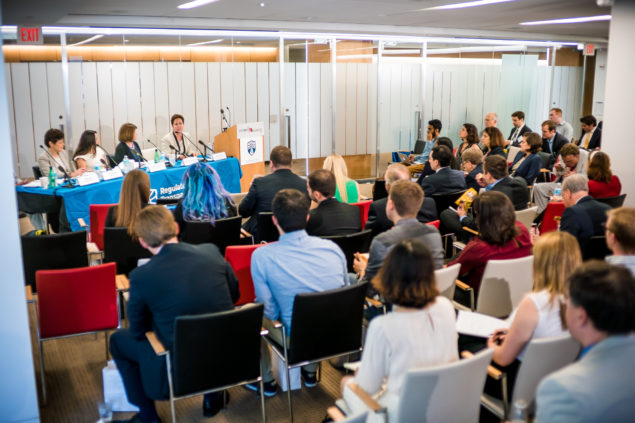Antitrust & Consumer Protection
Topics

Ideally, regulatory agencies enforce antitrust laws to increase competition among businesses, prevent market stagnation, and promote consumer welfare. Despite often major intrusions into the market, agencies have sometimes failed to meet these goals. Why is this the case and what are workable solutions?
Consumer Welfare & the Rule of Law: The Case Against the New Populist Antitrust Movement
The authors of this paper argue that the modern consumer welfare standard is an objective, consistent, reliable, and appropriate framework for good antitrust law and enforcement.
Read this paperConsumer Protection at the FTC and the CFPB
In this paper, James Cooper, Timothy Muris, and Todd Zywicki examine and make recommendations to help improve consumer protection efforts at both the Federal Trade Commission and the Consumer Financial Protection Bureau.
Read this paperState Licensing Boards, Antitrust, and Innovation
In this paper, James Cooper, Elyse Dorsey, and Joshua Wright discuss occupational licensing boards, competition, and the role antitrust law can play in the marketplace.
Read this paperDeep Dive Episode 261 – Navigating the Axon Decision: Understanding its Implications for Federal Agencies and Administrative Law
In a highly anticipated decision, the Supreme Court held in Axon Enterprise, Inc. v. FTC (consolidated with Cochran v. SEC) that federal district courts have jurisdiction to resolve challenges to the structure and existence of federal agencies whose decisions are subject to review in a court of appeals.
Listen to this podcastDeep Dive Episode 255 – A Roundtable on Recent Developments at the FTC
This episode is a live recording of a panel of antitrust law experts examining recent developments and debating what might come next at the FTC.
Listen to this podcastDeep Dive Episode 254 – The Implications of the FTC’s Proposed Ban on Noncompete Agreements
In January 2023, the FTC announced a proposed rule that would ban noncompete agreements across most of the U.S. economy – a move President Biden lauded in his recent State of the Union address.
Listen to this podcastDeep Dive Episode 251 – FTC: Cost/Benefit Analysis of Proposed Rules – A Deeper Dive
A panel of experts explore how a federal agency undertakes the cost-benefit analysis for proposed rules, comparing independent agencies to those subject to OIRA review, and provide practical tips for lawyers and economists working on agency rulemaking comments.
Listen to this podcastDeep Dive Episode 250 – Examining the CFPB’s Targeting of Discrimination in Consumer Finance Through UDAAP
Under the Biden Administration, Consumer Financial Protection Bureau Director Rohit Chopra has dramatically increased the substantive reach of the CFPB’s use of guidance documents and examination and supervision powers.
Listen to this podcastDeep Dive Episode 245 – Courthouse Steps Oral Argument: Axon v. Federal Trade Commission
Experts discuss key take-aways from the Axon v. FTC oral argument and implications for administrative litigation at the Federal Trade Commission and other agencies.
Listen to this podcastExplainer Episode 40 – FTC’s New Strategic Plan and the Future of Agency Action
In this episode, experts discuss the goals of the FTC’s new Strategic Plan as well as the challenges facing future agency action.
Listen to this podcastExplainer Episode 36 – Restrictions on Direct Car Sales
Adam Thierer interviews Professor Daniel Crane regarding state restrictions on direct car sales and their implications for automobile markets.
Listen to this podcastDeep Dive Episode 204 – The FTC in the Current Administration: Buckle Your Seatbelts
An expert panel debates the future of the FTC.
Listen to this podcastDeep Dive Episode 203 – FTC’s Revolution Through Rulemaking
A panel of experts discusses the FTC’s statutory authority, processes and procedures, and likely upcoming actions.
Listen to this podcastDeep Dive Episode 197 – Competition at a Crossroads: Will the Executive Order on Competition Advance Competition, or Restrict It?
A distinguished panel joined us to lay out the arguments behind and implications of Biden’s executive order on competition.
Listen to this podcastDeep Dive Episode 189 – A Dawning Era for Vertical Mergers? The New Vertical Merger Guidelines, Illumina/Grail, and More
An expert panel discusses the recent developments in the vertical merger space, the Illumina/Grail case, and the future of antitrust enforcement.
Listen to this podcastDeep Dive Episode 178 – (Un)Civil War: The Future of Conservative Antitrust
Professors Joshua D. Wright and John Yun discuss the future of the conservative approach to antitrust law.
Listen to this podcastDeep Dive Episode 176 – Courthouse Steps Decision: AMG Capital Management v. FTC
Experts discuss the Supreme Court’s recent decision and its implications for the FTC’s ability to seek, or a court to award, monetary relief such as restitution.
Listen to this podcastDeep Dive Episode 175 – Big Tech and Antitrust
The Federalist Society’s Chicago Lawyers Chapter hosted a panel of antitrust experts to discuss the current debates over antitrust law and Big Tech.
Listen to this podcastDeep Dive Episode 171 – Courthouse Steps Oral Argument: NCAA v. Alston
Joshua Wright joins us to discuss oral arguments in NCAA v. Alston and the potential implications of the case.
Listen to this podcastDeep Dive Episode 166 – The CFPB Taskforce Report on Federal Consumer Financial Law
CFPB Taskforce on Federal Consumer Financial Law Chair Todd Zywicki joins us to discuss his taskforce’s report.
Listen to this podcastDeep Dive Episode 165 – Fireside Chat on the State of the FTC with Bilal Sayyed
Bilal Sayyed and Svetlana Gans discuss the state of the FTC, the challenges facing the agency, and the path ahead in the new administration.
Listen to this podcastDeep Dive Episode 162 – Is Common Carrier the Solution to Social-Media Censorship?
Experts discuss the practicality and desirability of using common carrier to regulate social media content moderation.
Listen to this podcastExplainer Episode 22 – Senator Klobuchar’s Antitrust Bill
Asheesh Agarwal and Ashley Baker join the podcast to discuss Senator Amy Klobuchar’s recently-announced bill to amend antitrust law.
Listen to this podcastDeep Dive Episode 158 – Courthouse Steps Oral Arguments: AMG Capital Management v. FTC
A distinguished panel analyzes oral arguments in AMG Capital Management v. FTC, a case that could define the scope of the FTC’s remedial authority.
Listen to this podcastExplainer Episode 19 – The Burden of Proof in Competition Law
Ashley Baker discusses the burden of proof framework currently used in competition law, the role of presumptions in antitrust litigation, and the potential implications of the burden shift proposed in a recent House Judiciary report.
Listen to this podcastDeep Dive Episode 146 – Fireside Chat with FTC Commissioner Noah Phillips
In this live podcast, FTC Commissioner Noah Phillips, Svetlana Gans, and Koren Wong-Ervin discuss the House Judiciary’s recent staff report and its potential ramifications.
Listen to this podcastDeep Dive Episode 144 – United States v. Google: Examining the Historic Antitrust Case Against Big Tech
This distinguished panel debated the merits of the DOJ’s antitrust claims, discussed the potential parallels to antitrust action against Microsoft, and opined on the government’s likelihood of success at trial.
Listen to this podcastDeep Dive Episode 137 – Antitrust Populism and the Conservative Movement
On October 7, 2020, the Federalist Society’s Pennsylvania Student Chapter and the Regulatory Transparency Project co-sponsored an event on “Antitrust Populism and the Conservative Movement.”
Listen to this podcastDeep Dive Episode 130 – FTC v. Qualcomm: The Ninth Circuit on Tech Antitrust
John Shu discusses the Ninth Circuit’s ruling in FTC v. Qualcomm and examines the history, arguments, and ramifications of the case.
Listen to this podcastDeep Dive Episode 120 – FTC Rulemaking: Underutilized Tool or National Nanny Renewed?
This expert panel examines recent calls for the Federal Trade Commission (FTC) to engage in substantive rulemaking under the competition and consumer-protection prongs of Section 5 of the FTC Act. How far does FTC statutory authority under 6(g) extend? Is rulemaking appropriate as a matter of policy? How has FTC rulemaking fared in the past and what guideposts should apply?
Listen to this podcastDeep Dive Episode 112 – FTC Hot Topics with Commissioner Christine Wilson: Regulatory Reform, Privacy, Antitrust, & Beyond
Please enjoy this recording of our May 18, 2020 fireside chat discussion on the Federal Trade Commission’s regulatory reform efforts, federal privacy legislation, and the future of antitrust law.
Listen to this podcastDeep Dive Episode 105 – Do We Need to Rethink Antitrust for Big Tech?
On March 4, 2020, the Regulatory Transparency Project sponsored a symposium with the University of Pennsylvania Federalist Society student chapter. The first panel of the symposium was titled “Do We Need to Rethink Antitrust for Big Tech?”
Listen to this podcastDeep Dive Episode 78 – FTC’s 21st Century Hearings
With the conclusion of the Federal Trade Commission’s 21st Century Hearings, the agency is finalizing several reports concerning the state of competition in the US, vertical mergers, the consumer welfare standard, and privacy.
Listen to this podcastDeep Dive Episode 57 – Payday Lending Loans
In this episode, Todd Zywicki (Antonin Scalia Law School) discusses recent proposed rulemaking from the Consumer Financial Protection Bureau rescinding the “ability to repay” standard on small dollar lenders.
Listen to this podcastDeep Dive Episode 46 – Big Tech, Competition, and Antitrust Enforcement
Neil Chilson and Charlotte Slaiman discuss the debate over governmental oversight of big tech companies and the proper role of the federal government in promoting consumer welfare and market competition.
Listen to this podcastDeep Dive Episode 44 – Pepperdine Law Review’s 2019 Symposium Keynote Address: Roger Alford
In this episode, Roger Alford (Deputy Assistant Attorney General for International Affairs) addresses consent decrees, consumer welfare, and the challenges of the emerging global digital markets.
Listen to this podcastDeep Dive Episode 42 – Populist Antitrust
In this panel, the speakers debate varying standards for antitrust rule-making and enforcement. The merits of the Neo-Brandeisian “populist” approach are weighed against more recent “consumer-welfare” standards.
Listen to this podcastA Fireside Chat with Former FTC Chairs Tim Muris and Maureen Ohlhausen
The current FTC has criticized prior Commission positions, stating they are making a sharp departure from the decades-long approach they…
Watch this videoRegulation and Red Tape: Mergers, Monopolies, and the FTC
Since the 19th century, the United States government has intervened to combat the growth of monopolies in our economy. The…
Watch this videoOfficial Trailer: The Regulation and Red Tape Series
In this new video series from the Regulatory Transparency Project, leading legal experts will debate some of the most controversial regulatory issues in America today. Moderated by the Hon. Paul J. Ray, “Regulation and Red Tape” will tell true stories of how federal regulatory actions impact the lives of ordinary Americans and the economy they rely on. In watching this series, you will have the opportunity to learn more about how the regulatory process functions, consider how and when regulatory action is necessary, and evaluate the trade-offs involved when the regulatory state acts.
Watch this videoNavigating the Axon Decision: Understanding its Implications for Federal Agencies and Administrative Law
In a highly anticipated decision, the Supreme Court held in Axon Enterprise, Inc. v. FTC (consolidated with Cochran v. SEC) that federal district courts have jurisdiction to resolve challenges to the structure and existence of federal agencies whose decisions are subject to review in a court of appeals.
Watch this videoA Roundtable on Recent Developments at the FTC
Recent months have seen a flurry of notable developments at the Federal Trade Commission. Antitrust law experts examine these developments and debate what might come next at the FTC.
Watch this videoThe Implications of the FTC’s Proposed Ban on Noncompete Agreements
In January 2023, the FTC announced a proposed rule that would ban noncompete agreements across most of the U.S. economy – a move President Biden lauded in his recent State of the Union address.
Watch this videoFTC: Cost/Benefit Analysis of Proposed Rules – A Deeper Dive
Although primarily an enforcement agency, the Federal Trade Commission (FTC) has issued a historic number of proposed rules over the…
Watch this videoExamining the CFPB’s Targeting of Discrimination in Consumer Finance Through UDAAP
Under the Biden Administration, Consumer Financial Protection Bureau Director Rohit Chopra has dramatically increased the substantive reach of the CFPB’s use of guidance documents and examination and supervision powers.
Watch this videoCourthouse Steps Oral Argument: Axon v. Federal Trade Commission
Experts discuss key take-aways from the Axon v. FTC oral argument and implications for administrative litigation at the Federal Trade Commission and other agencies.
Watch this videoThe Evolution of Antitrust Laws Relating to College Athletics
Law professor Babette Boliek explains how two recent cases mark an evolution in antitrust laws towards covering the growing commercial enterprise of the student-athlete market.
Watch this videoThe FTC in the Current Administration: Buckle Your Seatbelts
An expert panel debates the future of the FTC.
Watch this videoFTC’s Revolution Through Rulemaking
A panel of experts discusses the FTC’s statutory authority, processes and procedures, and likely upcoming actions.
Watch this videoCompetition at a Crossroads: Will the EO on Competition Advance Competition, or Restrict It?
A distinguished panel joined us to lay out the arguments behind and implications of Biden’s executive order on competition.
Watch this videoA Dawning Era for Vertical Mergers? The New Vertical Merger Guidelines, the FTC’s Challenge to Illumina/Grail, and the Future of Enforcement
A panel of experts discusses the recent developments in the vertical merger space, the theories at issue in the Illumina/Grail case, and implications for future enforcement activity.
Watch this videoWho Can Sue Under the Antitrust Laws? Antitrust Injury Under Brunswick Corp. v. Pueblo Bowl-O-Mat
The 1977 Supreme Court case Brunswick Corp. v. Pueblo Bowl-O-Mat set an important precedent about who can or cannot be a plaintiff in an antitrust suit.
Watch this video(Un)Civil War: The Future of Conservative Antitrust
Professors Joshua D. Wright and John Yun discuss the future of the conservative approach to antitrust law.
Watch this videoBig Tech and Antitrust
The Federalist Society’s Chicago Lawyers Chapter hosted a panel of antitrust experts to discuss the current debates over antitrust and Big Tech.
Watch this videoIs Common Carrier the Solution to Social-Media Censorship?
Experts debate the relevant legal contours and the desirability of a common carrier solution to curbing Big Tech power.
Watch this videoApple v. Pepper: When Can a Private Individual Sue for an Antitrust Violation?
In Apple v. Pepper, the Supreme Court considered whether consumers could directly sue Apple for a surcharge on apps in the iPhone App Store.
Watch this videoFireside Chat with FTC Commissioner Noah Phillips: The House Judiciary Antitrust Staff Report
The Regulatory Transparency Project hosted a virtual fireside chat with FTC Commissioner Noah Phillips on the House Judiciary Antitrust Staff Report and its potential ramifications.
Watch this videoWhen Does Refusal to Deal Violate Antitrust Law?
In 2004, the Supreme Court decided Verizon Communications v. Law Offices of Curtis V. Trinko. The case examined what types of monopolistic activities would violate antitrust laws. The Court addressed issues involving forced sharing, the risks and rewards of competition in a free market, and the role of governing regulations. The Trinko decision raises important questions and provides insightful consideration for examining antitrust issues.
Jan Rybnicek is Counsel at Freshfields Bruckhaus Deringer.
Watch this videoUnited States v. Google: Examining the Historic Antitrust Case Against Big Tech
On October 30, 2020, the Federalist Society’s Corporations, Securities & Antitrust Practice Group and the Regulatory Transparency Project cosponsored a virtual panel on “United States v. Google: Examining the Historic Antitrust Case Against Big Tech.”
Watch this videoAntitrust Populism and the Conservative Movement
On October 7, 2020, the Federalist Society’s Pennsylvania Student Chapter, the Penn Law Journal of Law and Innovation, and the Regulatory Transparency Project co-sponsored an event on “Antitrust Populism and the Conservative Movement.”
Watch this videoFTC Rulemaking: Underutilized Tool or National Nanny Renewed?
This expert panel examined recent calls for the Federal Trade Commission (FTC) to engage in substantive rulemaking under the competition and consumer-protection prongs of Section 5 of the FTC Act. How far does FTC statutory authority under 6(g) extend? Is rulemaking appropriate as a matter of policy? How has FTC rulemaking fared in the past and what guideposts should apply?
FTC Commissioner Noah Phillips gave honorary introductory remarks.
Watch this videoFTC Hot Topics with Commissioner Christine Wilson: Regulatory Reform, Privacy, Antitrust, & Beyond
On May 18, the Regulatory Transparency Project hosted a virtual fireside chat discussion on the Federal Trade Commission’s regulatory reform efforts, federal privacy legislation, and the future of antitrust law.
Watch this videoAntitrust & Big Tech
A conversation about the history of antitrust law, the consumer welfare standard, and the tech giants.
Facebook, Amazon, Apple, Netflix, and Google provide extremely valuable products and services, but their size, market share, and other concerns such as user privacy have led to concerns that they are wielding too much power.
Proponents of “populist” or “hipster” antitrust advocate for limiting the size of firms. This would require changing the Consumer Welfare Standard, which has been in place since the 1970’s.
Mark Zuckerburg’s testimony before Congress in April 2018 ignited a public debate about whether and how tech companies should be regulated. That debate continues and shows no signs of resolution.
Is it time to revisit the standards used in antitrust law? Our experts explore.
Watch this videoPepperdine Law Review’s 2019 Symposium: Populist Antitrust
Today’s regulatory landscape presents challenges for public and private entities. Private actors are often faced with conflicting, ambiguous, or altogether absent regulatory frameworks. Is it possible for them to overcome these challenges while delivering the creativity and innovation the marketplace demands? How can government regulators and legislators avoid stifling opportunity, function more efficiently, and enact and enforce sensible and effective regulatory schemes?
Pepperdine Law Review’s 2019 Symposium, in partnership with the Regulatory Transparency Project, explored these vital questions from both the academic and practical perspectives. The second panel of the symposium focused on the current debate over the future of antitrust enforcement.
Watch this videoReboot 2018: “What Has Big Tech Ever Done for Us?“ Towards a 21st Century Competition Policy
Increasing skepticism about the influence and power of big tech companies has given rise to expanded calls for government to break up, punish or regulate the tech industry. We’ll bring together experts on all sides to debate the impact of big tech on society, and whether we need to rethink competition policy for the modern era. Moderated three-way debate.
The Regulatory Transparency Project co-sponsored the Lincoln Network’s Reboot 2018 conference.
Watch this videoOccupational Licensing, Antitrust, and Innovation
Every state has laws or regulations that require individuals seeking to offer a certain service to the public first to obtain approval from the state before they may operate in the state. Recent years have seen a significant proliferation of such laws, with less than 5% of jobs in the American economy requiring a license in the 1950’s to between 25-30% today. Although licensing in some occupations may benefit the public by reducing information asymmetry and/or ensuring a minimum quality level for a particular service, the significant growth in the number of occupations governed by some form of licensing requirements poses a potential threat to competition and consumer welfare. Our panel of experts discussed these important issues.
Watch this videoFTC Diverges from the Consumer-Welfare Standard in Bid to Block Microsoft-Activision Deal
Rachel Chiu
Rivalry is a necessary feature of market competition, and transactions that enable companies to compete on par with dominant players and expand into new products have net benefits for consumers. Antitrust enforcers should stick to the consumer-welfare standard, rather than seeking to micromanage the economy.
Read this articlePartisan Enforcement and Increasing Uncertainty at the FTC: Commissioner Wilson’s Departure and Recent FTC Administrative Actions
Elyse Dorsey
The Federal Trade Commission has amped up its administrative activity of late, portending changes in enforcement to come.
Read this articleSCOTUS Preview: Axon v. FTC
Svetlana Gans and Josh Zuckerman
On November 7, the Supreme Court will hear oral argument in Axon Enterprise, Inc. v. Federal Trade Commission. The case presents a narrow but vital question of administrative law. Do district courts have jurisdiction to hear “constitutional challenges to the Federal Trade Commission’s structure, procedures, and existence?” Or must plaintiffs first raise such constitutional challenges in administrative proceedings before the FTC?
Read this articleNew Webinar: “FTC’s Revolution Through Rulemaking”
Nicholas Nelson
In November, the Federalist Society’s Regulatory Transparency Project presented a panel discussion on the history of FTC rulemaking authority.
Read this articleAn Interview with Makan Delrahim, Former Assistant Attorney General for the Department of Justice Antitrust Division
Makan Delrahim and Svetlana Gans
Svetlana S. Gans interviews Makan Delrahim, former Assistant Attorney General for the Department of Justice Antitrust Division.
Read this articleStatements to House Judiciary on Antitrust Reform
Several members of the Regulatory Transparency Project’s antitrust working group were invited to submit statements on competition issues in digital markets to the House Antitrust Subcommittee.
Read this articleCommentary on Credit Card Interest Rate Caps Legislation
Federalist Society expert Prof. Todd Zywicki has written several articles on the recent legislative momentum to cap credit card interest rates. His arguments explore a breadth of financial regulatory history and offers warnings for unexpected outcomes for consumers.
Read this articleDeputy Assistant Attorney General Roger Alford on Antitrust Regulation and Enforcement
Deputy Assistant Attorney General for International Affairs Roger Alford delivered the keynote address in March at the Pepperdine Law Review‘s Symposium.
Read this articleA Bargaining Model v. Reality in FTC v. Qualcomm: A Reply to Kattan & Muris
Douglas Ginsburg and Joshua D. Wright
In a recent article Joe Kattan and Tim Muris (K&M) criticize our article on the predictive power of bargaining models in antitrust, in which we used two recent applications to explore implications for uses of bargaining models in courts and antitrust agencies moving forward. Like other theoretical models used to predict competitive effects, complex bargaining models require courts and agencies rigorously to test their predictions against data from the real world markets and institutions to which they are being applied. Where the “real-world evidence,” as Judge Leon described such data in AT&T/Time Warner, is inconsistent with the predictions of a complex bargaining model, then the tribunal should reject the model rather than reality.
Read this articleAn Evidentiary Cornerstone of the FTC’s Antitrust Case Against Qualcomm May Have Rested on Manipulated Data
Geoffrey Manne
The abbreviated trial in the FTC’s case against Qualcomm saw the presentation by Qualcomm of some damning evidence that, if accurate, seriously calls into (further) question the merits of the FTC’s case.
Read this articleAntitrust is Hot Again – A Conversation on Populist, Hipster, and More Antitrust Policy Monikers
William Rinehart
In March, the Pepperdine Law Review cohosted a symposium with the Regulatory Transparency Project on “Regulating Tech: Present Challenges and Possible Solutions”. Babette Bullock, Chief Economist for the FCC, began her panel by observing that antitrust is a hot topic again, appearing under several names such as populist, hipster, or EU style antitrust policy. Will Rinehart started his remarks with an accessible overview of the subject, and we have transcribed his comments to share them with you.
Read this articleFTC v. Qualcomm: Innovation and Competition
Geoffrey A. Manne
This complex case is about an overreaching federal agency seeking to set prices and dictate the business model of one of the world’s most innovative technology companies.
Read this articleThe Taiwan Fair Trade Commission’s Problematic Qualcomm Decision Highlights the Urgent Need for U.S. Leadership in International Antitrust
Joshua D. Wright
The TFTC’s Qualcomm decision clearly demonstrates the urgent need for further steps and continued leadership from American antitrust agencies.
Read this articleOccupational Licensing, Antitrust, and Innovation Panel
Patience Roggensack and Lisa Kimmel
While professional licensing can have an important role to play in protecting consumers, the proliferation of state occupational licensing regulations over the past fifty years raises important competition policy concerns.
Read this articleOccupational Licensing and the American Dream
James C. Cooper, Koren Wong-Ervin, and Joshua D. Wright
More than a quarter of the American labor force requires a state license to work, a five-fold increase since the 1950s. Occupational licensing imposes restrictions on competition in every reach of the modern economy — with pernicious effects.
Read this article




